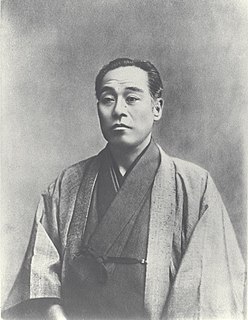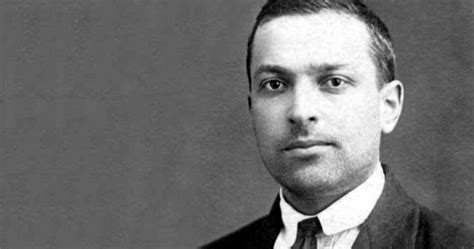A Quote by Aleister Crowley
When one walks, one is brought into touch first of all with the essential relations between one's physical powers and the character of the country; one is compelled to see it as its natives do. Then every man one meets is an individual.
Related Quotes
No wise man will go to live in the country, unless he has something to do which can be better done in the country. For instance, if he is to shut himself up for a year to study science, it is better to look out to the fields, than to an opposite wall. Then, if a man walks out in the country, there is nobody to keep him from walking in again: but if a man walks out in London, he is not sure when he will walk in again. A great city is, to be sure, the school for studying life.
It is essential that God created men and women to be one, as it is said in the first chapters of the Bible. So I think even if our culture is against marriage as essential form of relations between human beings, between women and men. I think our nature is always present, and we can understand it if we will understand it.
Indians are the Italians of Asia and vice versa. Every man in both countries is a singer when he is happy, and every woman is a dancer when she walks to the shop at the corner. For them, food is the music inside the body and music is the food inside the heart. Amore or Pyar makes every man a poet, a princess of peasant girl if only for second eyes of man and woman meets.
Each individual man and each individual country, according to the principles of natural reason, is free from bondage. Consequently, if there is some threat that might infringe upon a country's freedom, then that country should not hesitate even to take up arms against all the countries of the world.
Every function in the child's cultural development appears twice: first, on the social level, and later, on the individual level; first, between people (interpsychological) and then inside the child (intrapsychological). This applies equally to voluntary attention, to logical memory, and to the formation of concepts. All the higher functions originate as actual relationships between individuals.
If you lose touch with nature you lose touch with humanity. If there's no relationship with nature then you become a killer; then you kill baby seals, whales, dolphins, and man either for gain, for "sport," for food, or for knowledge. Then nature is frightened of you, withdrawing its beauty. You may take long walks in the woods or camp in lovely places but you are a killer and so lose their friendship. You probably are not related to anything to your wife or your husband.
The importation of foreigners into a country that has as many inhabitants as the present employments and provisions for subsistence will bear, will be in the end no increase of people, unless the new comers have more industry and frugality than the natives, and then they will provide more subsistence, and increase in the country; but they will gradually eat the natives out. Nor is it necessary to bring in foreigners to fill up any occasional vacancy in a country for such vacancy will soon be filled by natural generation.







































